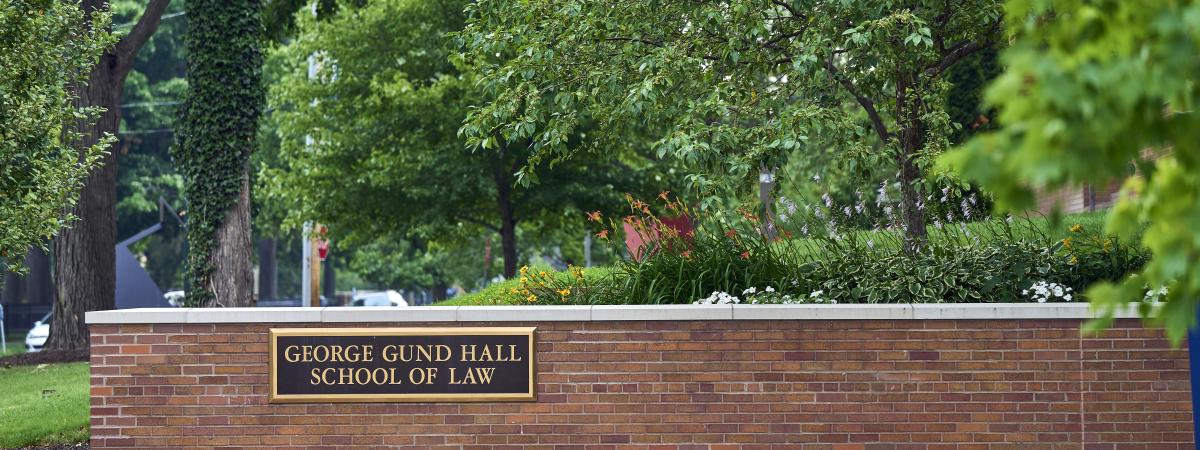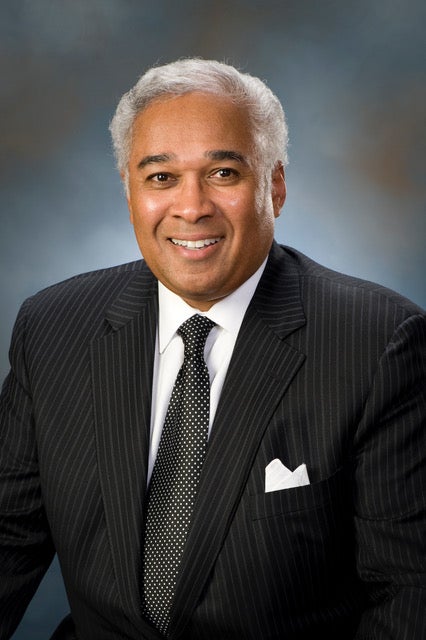A 1970 graduate of Case Western Reserve University and 1973 graduate of our law school, Jim Diggs served as Assistant U.S. Attorney for the Department of Justice in Cleveland, was vice president and assistant general counsel of TRW Inc., and then served as senior vice president and general counsel of PPG Industries, Inc. before retiring in 2010. An extremely generous patron of the law school, Jim has served as a University Trustee and most recently provided a gift to establish an endowed scholarship for a member of our Black Law Students Association.
Q: From its first class in 1892, our Law School has been a pioneer in diversity. Today, over 20 percent of the JD students are underrepresented minorities. Why is that important for the school and legal profession?
A: The law school environment is the place where future lawyers learn the profession and the underlying value of the "Rule of Law" in our society. Having students with diverse backgrounds and ethnicities provides a laboratory of sorts where various views and perspectives of the law can be explored and challenged in a nurturing environment that enriches the education of the entire student body. It is misplaced to believe that only minorities benefit from these interactions. I have found, from my own experience, that European Americans benefited as well from their exposure to minority students and the experiences they bring to the table to help solve legal problems. It is a symbiotic relationship that enhances the development of everyone involved, including the facility, staff and administration.
Q: While in law school, you took your first airplane flight on a trip to help the school recruit students from Morehouse College, an HBCU. Tell us about that experience?
A: Being that it was my first trip on an airplane, and that the journey took me to Atlanta, it was quite a lot for me to absorb. My mother was born in Alabama. My first trips as a child were train trips to visit my relatives in the South. We left Cleveland during the day and at night we were forced to transfer to racially segregated cars after we reached the Mason/Dickson line. Traveling home by car, we packed lunches and stopped at the "Colored Only” spots along the way. Even in the early 1970s, Atlanta was an oasis in the desert for African Americans. Minorities owned and operated businesses of consequence and were ensconced in positions of political leadership in the city. Morehouse and other HBCUs we visited welcomed us with open arms, and we realized then that these HBCU students could make a valuable contribution to our university.
Q: As the second Black Law Students Association (BLSA) chapter in the United States, the Case Western Reserve University School of Law BLSA chapter has had a proud history. This year, it won the National BLSA Constance Baker Motley Mock Trial Competition for the first time after making it to the national finals twice before. Tell us about your involvement in BLSA when you were a student and over the years since you graduated.
A: During my years in law school, I found BALSA, and my participation in the organization, to be foundational to my ability to overcome the isolation I felt as a minority. We organized study groups and social events and we found other ways to support each other. To my regret, after leaving law school, I have not remained as engaged as I could have been. Establishing an endowment is a first step moving forward and I plan to find other ways to support the organization in the future.
Q: Having grown up in East Cleveland, you were the first in your family to go to college. You've had an incredibly successful legal career, and now two of your children have followed in your footsteps. What advice would you give other first generation students about succeeding in law school and beyond?
A: First, don’t let not having someone in your immediate family who is in the legal profession deter you from having confidence in your ability to succeed, and do not shy away from new challenges. Second, play an active role in seeking advice from mentors, not only from within the law school, but from the external legal profession as well. Being able to talk honestly and candidly to mentors about the difficulties you are facing, and to be able to learn from them, can make all the difference in the world to your success.






